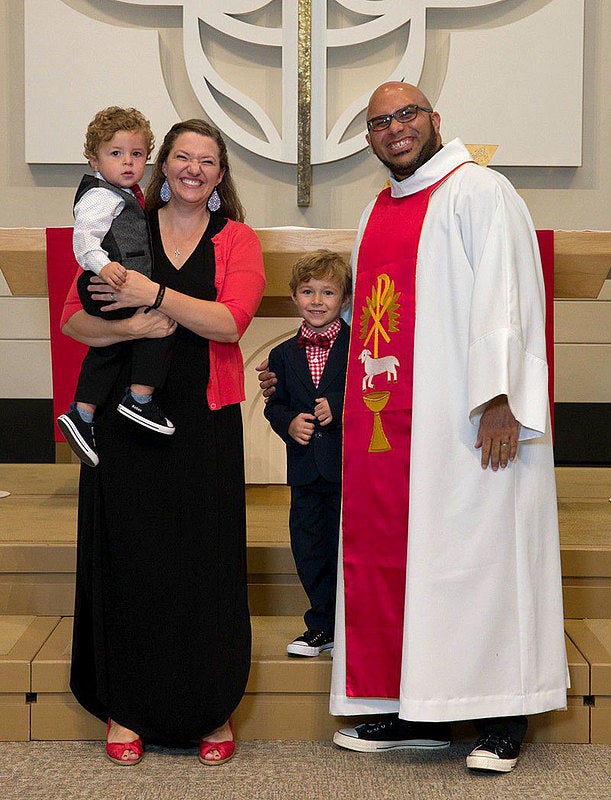A church for tomorrow
by Ellen Modersohn
Felix Malpica ’09 says that when he first came to Luther, “It just felt right. It became a place for me to grow and thrive and learn about who I was as a leader, as a musician.”

Bishop Felix Malpica '09 with wife Jessica and sons Javier (4) and Ruben (1)
Last year, Malpica was elected bishop of the La Crosse Area Synod of the Evangelical Lutheran Church in America. At age 34, he became the youngest and first person of color to hold that post. Malpica was born in Puerto Rico and moved to the Chicago area when his father was called to serve at the ELCA Churchwide Office.
Malpica found Luther through the late Ben Larson ’06, with whom he attended synod assemblies and summer missionary conferences. In high school they became musicians, performing for worship and assemblies across the country. “We had really deep conversations about life and ministry and where our lives were headed,” Malpica says. Larson enrolled at Luther and when it came time for Malpica to choose a college, he recalls, “Ben said, ‘Felix, you gotta go to Luther.’”
Malpica’s studies at Luther focused on music and Spanish literature, and he also realized he wanted a career in the church. The many pastors in his life encouraged him to embrace the liberal arts spectrum; his seminary years after Luther would give him plenty of religion classes. “I heard this message over and over again: take advantage of the full breadth of what liberal arts means. And that really gave me some freedom,” he says.
Malpica did take some religion classes, but also courses in theatre, pottery, archery, dance, ancient Greek, psychology, social work, and even astrophysics. A broad education has helped him more thoughtfully respond to questions and situations.
“I can access different aspects of questions just by virtue of the way I’ve been shaped by that education,” he says.
Malpica thinks about worship similarly, believing it needs to incorporate aspects of life around the world. “It’s important to remember that worship needs to be cross-cultural. You need to open yourself to expressions of worship and theology from outside your own culture,” he says.
His passion for global music helps him bring a multicultural experience to congregations. “In worship, we create our communal image of who God is,” he says.
“So if you can experience worship a little bit differently, you might expand your image of who God is, as opposed to the old white guy you see if you only ever hear German music. If you hear something from Latin America or Africa or Asia, you might think, Oh, maybe God dances a little. Maybe God is wispy. Maybe God is full of drum and bass.”
Expanding their vision of the church is important for congregations, especially now, Malpica says. “The church is at a pivotal point. The pandemic has been difficult. I think it has provided an opportunity because it has disrupted what has been normal in such a way that we can dream about how we might faithfully be the church for tomorrow. That, to me, is exciting.”